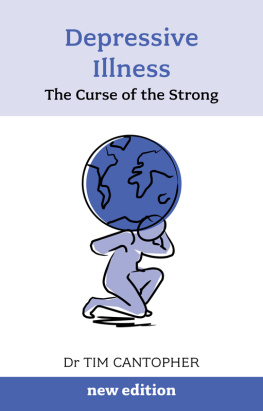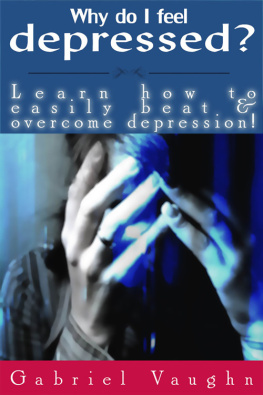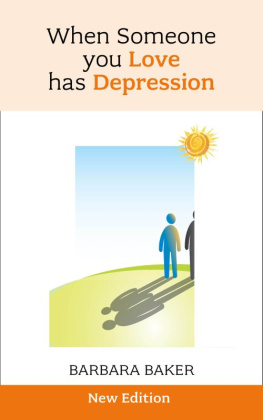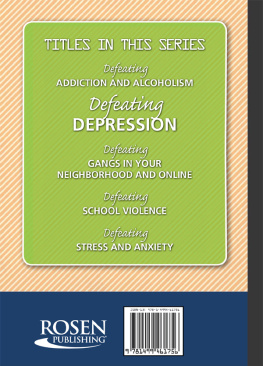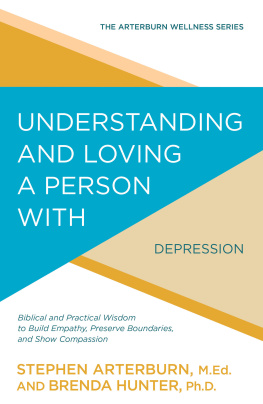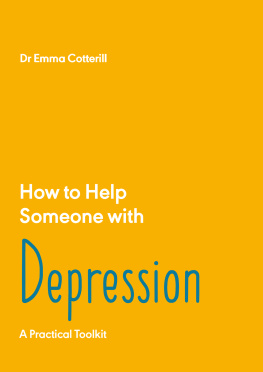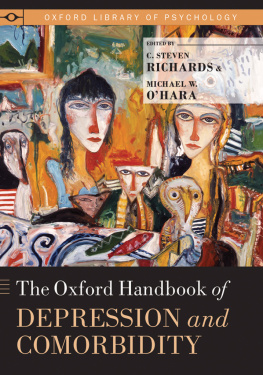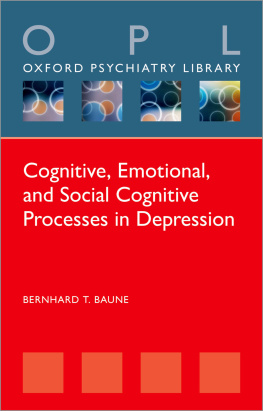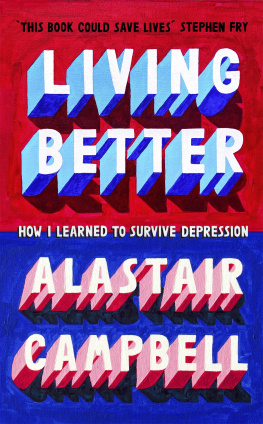Depressive Love
Love and depression are key elements in the cultural script of emotions or affectual life within contemporary Western society, and the two have become intertwined to such an extent that it is informative to talk about depressive love. Indeed, the most common source of depression is intimate relationships, in which one partner is not recognised by the other as being in need or worthy of loving care. This book addresses the question of how it is possible for opposite emotional experiences such as love and depression to appear simultaneously, empirically documenting the phenomenon of depressive love and its implications through studies of art, including music, literature and photography, and the experiences of everyday life, by way of interviews and the analysis of e-mail-, sms-, messenger-correspondence, and other new media spaces. Engaging with a range of sociological, psychoanalytic and philosophical theories of love, depression and emotion, including the work of Simmel, Alberoni, Barthes, Hochschild, Giddens, Luhmann, Beck and Beck-Gernsheim, Illouz, Bauman, Hegel, Honneth, Ehrenberg, Han, Lvinas, Sartre, Freud, Lacan, and Kristeva, to name but a few, the author examines the ways in which depressive love is expressed in modern society, asking whether it is a new phenomenon and confined to the West and if not, what is distinctive about depressive love and its associated (dys)functions in contemporary Western society. An empirically rich and theoretically broad study of depressive love as a sign of our times, this book will appeal to scholars and students of social theory and the sociology and philosophy of emotion and interpersonal relationships.
Emma Engdahl is Senior Lecturer in Sociology at the University of Gothenburg, Sweden and the author of A Theory of the Emotional Self: From the Standpoint of a Neo-Meadian.
Classical and Contemporary Social Theory
Series Editor:
Stjepan G. Mestrovic, Texas A&M University, USA
Classical and Contemporary Social Theory publishes rigorous scholarly work that re-discovers the relevance of social theory for contemporary times, demonstrating the enduring importance of theory for modern social issues. The series covers social theory in a broad sense, inviting contributions on both classical and modern theory, thus encompassing sociology, without being confined to a single discipline. As such, work from across the social sciences is welcome, provided that volumes address the social context of particular issues, subjects, or figures and offer new understandings of social reality and the contribution of a theorist or school to our understanding of it.
The series considers significant new appraisals of established thinkers or schools, comparative works or contributions that discuss a particular social issue or phenomenon in relation to the work of specific theorists or theoretical approaches. Contributions are welcome that assess broad strands of thought within certain schools or across the work of a number of thinkers, but always with an eye toward contributing to contemporary understandings of social issues and contexts.
For a full list of titles in this series, please visit https://www.routledge.com/sociology/series/ASHSER1383
Depressive Love
A Social Pathology
Emma Engdahl
The New Narcissus in the Age of Reality Television
Megan Collins
Existence, Meaning, Excellence
Aristotelian Reflections on the Meaning of Life
Andreas Bielskis
Ghosts, Landscapes and Social Memory
Martyn Hudson
First published 2018
by Routledge
2 Park Square, Milton Park, Abingdon, Oxon OX14 4RN
and by Routledge
711 Third Avenue, New York, NY 10017
Routledge is an imprint of the Taylor & Francis Group, an informa business
2018 Emma Engdahl
The right of Emma Engdahl to be identified as author of this work has been asserted by her in accordance with sections 77 and 78 of the Copyright, Designs and Patents Act 1988.
All rights reserved. No part of this book may be reprinted or reproduced or utilised in any form or by any electronic, mechanical, or other means, now known or hereafter invented, including photocopying and recording, or in any information storage or retrieval system, without permission in writing from the publishers.
Trademark notice: Product or corporate names may be trademarks or registered trademarks, and are used only for identification and explanation without intent to infringe.
British Library Cataloguing in Publication Data
A catalogue record for this book is available from the British Library
Library of Congress Cataloging in Publication Data
Names: Engdahl, Emma, author.
Title: Depressive love : a social pathology / Emma Engdahl.
Description: 1 Edition. | New York : Routledge, 2018. | Series: Classical and contemporary social theory | Includes bibliographical references and index.
Identifiers: LCCN 2017036687 | ISBN 9781138050150 (hbk) | ISBN 9781315169033 (ebk)
Subjects: LCSH: Love--Social aspects. | Depression, Mental--Social aspects.
Classification: LCC BF575.L8 E54 2018 | DDC 152.4/1--dc23
LC record available at https://lccn.loc.gov/2017036687
ISBN: 978-1-138-05015-0 (hbk)
ISBN: 978-1-315-16903-3 (ebk)
Writing this book has been a lonely enterprise. Translating it from Swedish to English has not been that; many thanks to Ingrid Unemar st who has done the major part of the translation, and has been a sensitive discussant throughout the process. For having read and making comments on an early version of the manuscript in Swedish, I also want to thank Christian Abrahamsson, Mikael Carleheden, Torbjrn Elensky and Gunnar Olsson. Last, but not least, I want to thank my informants. Without you there would be no book.
Love is patient, love is kind. It is not jealous, [love] is not pompous, it is not inflated, it is not rude, it does not seek its own interests, it is not quick-tempered, it does not brood over injury, it does not rejoice over wrongdoing but rejoices with the truth. It bears all things, believes all things, hopes all things, endures all things At present I know partially; then I shall know fully, as I am fully known. So faith, hope, love remain, these three; but the greatest of these is love.
(First Letter to the Corinthians 13:47, 13)
This is not a book about the biblical texts on love. Do not let yourselves be deceived by the introductory quotation from the First Letter to the Corinthians. This book is really not about love at all. At least not about love as most of us imagine it. The quotation is still relevant, because it is loves transformation, to a phenomenon with deep relations to depression, which will be depicted here. We will explore the prominent position given to love and depression in our cultures emotional script.
I use the notion of emotional script to refer to different kinds of cultural agreements concerning what emotions we are supposed to feel, and how we are supposed to express them. For example, we are expected to be happy on our birthday, and saddened if someone close to us passes away. Both happiness and sadness can, of course, move us to the extent that we start crying. Yet, to let your tears fall down your cheeks during a funeral is more accepted than letting the same thing happen when you blow out the candles on your birthday cake. It is perceived as strange, if that lump in your throat, or that feeling of having been punched in the stomach, does not dissolve into tears when you walk towards the coffin to say your last goodbye. The notion of emotional script of course covers more than stated above, and it can be interpreted as including all the images, and stories, that surround us, and that express all kinds of different emotions that we use to understand ourselves and others.


